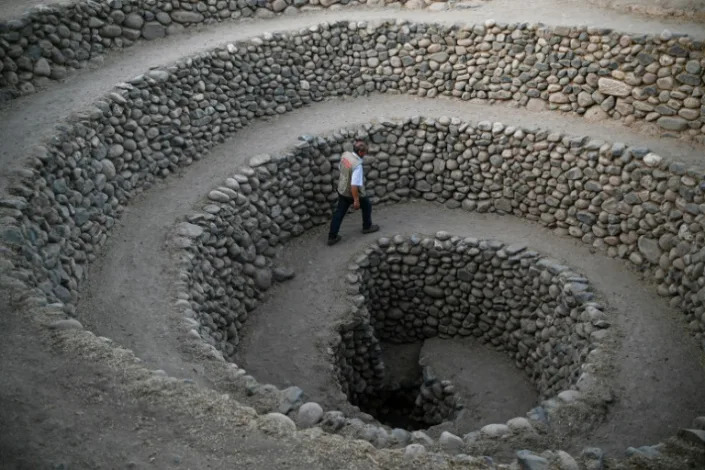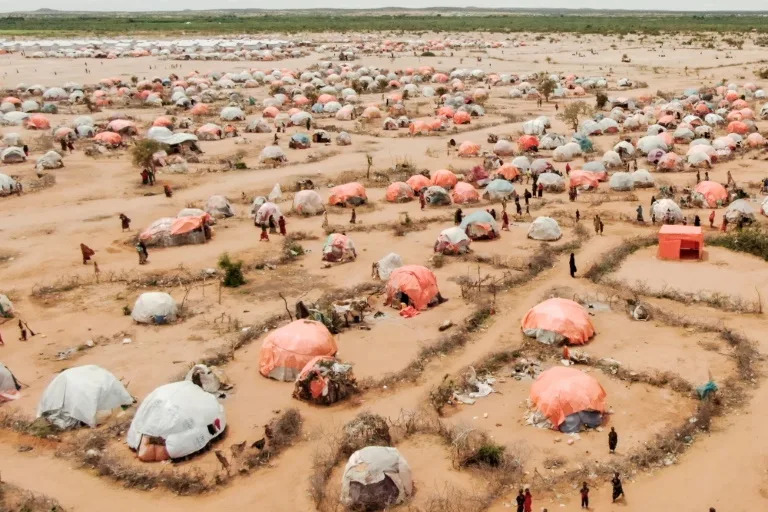
Elmas Topcu
DW
May 24,2023
Ahead of the runoff election for Turkey's next president, opposition candidate Kemal Kilicdaroglu has adopted nationalistic, anti-refugee rhetoric, while Erdogan’s supporters are relying on fake news to get votes.
The tone of the ongoing campaigns in Turkey is heating up ahead of the upcoming runoff vote between incumbent Recep Tayyip Erdogan and his challenger Kemal Kilicdaroglu.
While the government camp seems to be using all means necessary to defame the opposition and portray its presidential candidate as a traitor, Kilicdaroglu too is going on the offensive.
"Erdogan, you're the one who negotiated with terrorists behind closed doors," he said recently at a campaign event. "Who are you, and what gives you the right to question my patriotism?"
Manipulated campaign posters
Erdogan's supporters have chosen fake news to boost the campaign of the ruling Justice and Development Party (AKP). There are countless fake posters regarding the Republican People's Party (CHP), Turkey's largest opposition party, circulating online. One features the CHP's logo and reads: "To us, the YPG is not a terrorist organization. Decide now!"
The People's Protection Units — the YPG — is a Kurdish militia in Syria that's closely associated with the Kurdistan Workers' Party (PKK), which is listed as a terrorist organization by Turkey and other countries, including the US.
The fact-checking organization Teyit.org analyzed the authenticity of this poster, along with others, and confirmed they are not at all part of the CHP's official election campaign.
Prior to the first round of elections on May 14, fake news about the Turkish oppositionwas already widespread, but according to observers, the misinformation has become more extensive and systematic in the lead-up to the runoff.

Opposition candidate Kemal Kilicdaroglu has embraced a harsher tone in the lead-up to the runoff election
Image: Murad Sezer/REUTERS
Kilicdaroglu hopes to weaponize hostility against refugees
The opposition has also changed its strategy since the first round of elections. It seems that the party's internal strategists have assessed Kilicdaroglu's insistence on a conciliatory tone despite Erdogan's aggression as a sign of weakness. They've decided to try a new approach.
The opposition not only wants to win over voters with patriotism now but also with hostility towards refugees. The aim is to convince the biggest portion of the electorate: nationalists who are critical of the government.
Kilicdaroglu has been confronting his opponent directly, claiming that Erdogan has already brought 10 million refugees to Turkey and if he stays in power the same number will come into the country again. He has also warned that Turkish cities will be taken over by refugees, mafiosi and drug barons.
Should he win, he has announced repeatedly, he will send all refugees back. According to the United Nations High Commissioner of Refugees (UNHCR), there are approximately 4 million refugees currently living in Turkey.

Kemal Kilicdaroglu was more conciliatory ahead of the first round — this heart sign was his symbol
Murad Sezer/REUTERS
Kemal Bozay, an expert from the Center for Radicalization Research and Prevention at the International University of Applied Sciences in Cologne, Germany, considers Kilicdaroglu's change in strategy "radical." Bozay said that until now the motto of the 74-year-old had essentially been "everything will be alright" but the tone of his campaign had become noticeably more aggressive. But he explained that the plan to appeal to the supporters of the ultra-right, nationalist candidate Sinan Ogan, who came third in the first round, was risky.
"Kilicdaroglu shouldn't forget that he was elected in big cities and metropolitan areas and in Kurdish strongholds by Kurdish people, leftists and progressive leaning voters," Bozay added. He said that these voters might not support Kilicdaroglu's hostile rhetoric and approach regarding refugees. They might even feel so frustrated that they may even abstain from voting as a result.
Sinan Ogan, who received a surprising 5.2% of the votes on May 14, has now endorsed incumbent President Erdogan, but whether or not his voters will follow his lead remains to be seen. Shortly before he announced his endorsement, the far-right Ata Alliance party for which he had run was dissolved.
Erdogan seems relaxed
While the opposition scrambles for new strategies, Erdogan seems content to count on stability and confidence. "My esteemed companions and comrades, we've now experienced the most critical election in our history. ... I trust you," the 69-year-old wrote on Twitter.
After more than 20 years, the opposition had hoped they would finally put an end to Erdogan's rule on May 14. Kilicdaroglu was ahead in the majority of the polls. That's why the disappointment has been so widespread among opposition supporters.
None of the candidates received an absolute majority of the votes in the first round. Kilicdaroglu received almost 45% of the votes, and his Nation Alliance received 35%. It now has 213 seats in parliament, far fewer than expected.

Erdogan fell just short of a majority in the presidential election
ADEM ALTAN/AFP
President Erdogan received 49.5% of the votes, just shy of a majority. His alliance received 322 of the 600 seats in parliament, securing a majority for the next five years. So, the incumbent is in a strong position going into the runoff election.
President Erdogan received 49.5% of the votes, just shy of a majority. His alliance received 322 of the 600 seats in parliament, securing a majority for the next five years. So, the incumbent is in a strong position going into the runoff election.
Voting in foreign countries has begun
More than 3.4 million Turks living outside the country have the right to vote, and voting in the runoff has already begun for them.
According to the polls, Erdogan is doing better among this group of voters than at home: 57.5% of Turks living abroad voted for him in the first round and he has appealed to them once again to "defend Turkey's leadership."
"Turks living in other countries could play a major role in an Erdogan victory," said Bozay. "He definitely needs their votes during the runoff election."
This article was translated from German.














